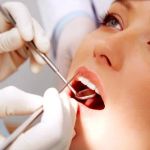The Critical Link Between Oral Hygiene and Overall Health
Oral hygiene is often seen as just a routine for a bright smile and fresh breath. However, its impact stretches far beyond the mouth, playing a crucial role in your overall health. In the United States, millions suffer from chronic diseases connected to poor oral hygiene, yet many underestimate this link. Maintaining good oral care is not only about preventing cavities or gum disease—it’s about protecting your entire body from serious health problems.
Scientific research continues to reveal strong connections between oral health and systemic diseases such as cardiovascular disease, diabetes, respiratory infections, and even cognitive decline. This article explores how oral hygiene affects your overall health, backed by scientific evidence and real-life stories, to motivate you toward better dental care habits.
1. How Poor Oral Hygiene Can Lead to Serious Health Problems
When oral hygiene is neglected, plaque buildup allows harmful bacteria to thrive, causing gum inflammation known as gingivitis, which can progress to periodontitis—a severe gum disease. The inflammation and bacteria from infected gums can enter the bloodstream, triggering harmful effects in other parts of the body.
One of the most alarming links is between periodontal disease and cardiovascular health. Studies show that people with poor oral hygiene and gum disease have a significantly higher risk of heart attacks and strokes. The bacteria and inflammatory markers associated with gum disease contribute to the narrowing of arteries, increasing the risk of atherosclerosis.
Furthermore, respiratory infections can develop from inhaling bacteria originating in the mouth, especially in individuals with compromised immune systems or the elderly. Poor oral care in nursing homes has been linked to higher rates of pneumonia and other lung infections, highlighting the importance of oral hygiene beyond just dental health.
2. Oral Health’s Role in Managing Diabetes
For individuals living with diabetes, oral hygiene takes on an even greater importance. Diabetes weakens the immune system, making it harder for the body to fight infections—including gum infections. Conversely, gum disease can negatively impact blood sugar control, creating a vicious cycle.
A compelling story involves Maria, a diabetic patient from Texas, who struggled with frequent gum infections. After improving her oral hygiene routine and working with her dentist for professional cleanings, Maria noticed better control over her blood sugar levels. Her experience reflects findings in medical literature, underscoring how good oral care supports overall diabetes management.
3. Pregnancy and Oral Hygiene: Protecting Two Lives
Pregnant women face unique challenges related to oral health. Hormonal changes increase the risk of gum inflammation and bleeding, conditions collectively known as pregnancy gingivitis. Left untreated, these infections have been linked to premature birth and low birth weight.
Ensuring optimal oral hygiene during pregnancy is essential. Regular dental visits, gentle brushing and flossing, and professional cleanings help reduce risks for both mother and baby. Sarah, a new mom from California, shared how improved dental care during pregnancy helped her avoid complications and ensured a healthy delivery.
4. Oral Hygiene and Cognitive Health: An Emerging Connection
Recent research suggests a possible link between poor oral hygiene and cognitive decline, including Alzheimer’s disease. The theory revolves around chronic inflammation caused by gum disease, which might contribute to the development or progression of neurodegenerative disorders.
Although this connection is still being explored, maintaining good oral hygiene is a simple, proactive step toward supporting brain health. Regular dental checkups and keeping gums healthy could become part of a broader strategy to preserve cognitive function as we age.
5. Practical Tips to Improve Your Oral Hygiene for Better Overall Health
Improving oral hygiene doesn’t have to be complicated. Here are several actionable tips supported by dental experts:
- Brush Twice Daily: Use fluoride toothpaste and a soft-bristled toothbrush. Brush for at least two minutes each session, ensuring you reach all surfaces.
- Floss Daily: Removing plaque between teeth prevents gum inflammation and decay that brushing alone can’t address.
- Limit Sugary Foods and Drinks: Excess sugar feeds harmful bacteria, increasing the risk of cavities and gum disease.
- Visit Your Dentist Regularly: Routine dental exams and cleanings help catch problems early and maintain oral health.
- Quit Smoking: Tobacco use dramatically increases the risk of gum disease and oral cancer, negatively affecting overall health.
- Stay Hydrated: Drinking water helps wash away food particles and keeps saliva levels optimal for fighting bacteria.
6. Real-Life Impact: Stories That Illustrate the Importance of Oral Care
Consider John, a veteran who ignored his oral hygiene for years. Eventually, he developed severe periodontal disease that contributed to worsening his heart condition. Only after receiving specialized dental care combined with medical treatment did John’s health improve noticeably.
Another example is Emily, a mother of three who taught her children the importance of brushing and flossing. Her family’s good oral health habits have kept them free from cavities and reduced their visits to the doctor, proving that prevention starts early.
These personal accounts highlight the critical role oral hygiene plays in maintaining not just a healthy smile but a healthy body.
Understanding the Comprehensive Benefits of Oral Hygiene
Oral hygiene affects more than just teeth and gums—it influences systemic health, quality of life, and longevity. By integrating good oral care habits into daily life, you’re investing in your whole body’s wellness. If you want to learn more about effective dental hygiene practices or need personalized advice, visit Dentistry Toothtruth for expert recommendations and tailored services designed to improve your oral and overall health.







 Shady Brook Family Dental4.0 (244 review)
Shady Brook Family Dental4.0 (244 review) Southside Orthodontics - Your Colonial Heights and Chesterfield Orthodontist4.0 (274 review)
Southside Orthodontics - Your Colonial Heights and Chesterfield Orthodontist4.0 (274 review) Smile Fixer RVA: Stacy Lukanuski DDS, D.B.A4.0 (249 review)
Smile Fixer RVA: Stacy Lukanuski DDS, D.B.A4.0 (249 review) Access Health Dental4.0 (280 review)
Access Health Dental4.0 (280 review) Park Avenue Dental Associates4.0 (799 review)
Park Avenue Dental Associates4.0 (799 review) MDS Dental Solutions, LLC0.0 (0 review)
MDS Dental Solutions, LLC0.0 (0 review) The Importance of Oral Health Education During Pregnancy for a Healthy Pregnancy
The Importance of Oral Health Education During Pregnancy for a Healthy Pregnancy Best Tips for Brushing Your Teeth Properly for Healthy Gums: Essential Techniques for Oral Health
Best Tips for Brushing Your Teeth Properly for Healthy Gums: Essential Techniques for Oral Health Why Skipping Dental Checkups Can Lead to Bigger Oral Health Problems
Why Skipping Dental Checkups Can Lead to Bigger Oral Health Problems Advantages of Porcelain Dental Restorations
Advantages of Porcelain Dental Restorations How Can Diabetes Cause Tooth and Gum Problems? Preventing and Managing Oral Health Issues
How Can Diabetes Cause Tooth and Gum Problems? Preventing and Managing Oral Health Issues Healthy Habits for Promoting Good Oral Health and Hygiene: Tips for a Healthy Smile
Healthy Habits for Promoting Good Oral Health and Hygiene: Tips for a Healthy Smile